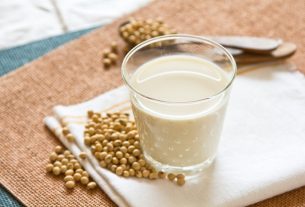Agave is a succulent plant with several species, including the blue agave, which is used to produce syrup or nectar. Agave syrup is a source of inulin, an important prebiotic fiber to prevent constipation and irritable bowel syndrome. Furthermore, the food is rich in saponins, an antioxidant and anti-inflammatory that helps prevent diseases such as diabetes and cancer.
Because it has good amounts of fructose, agave syrup is a low glycemic index food. This means that it promotes balance in blood sugar levels, preventing diabetes and also helping with weight loss diets. See other low glycemic index foods that help you lose weight.
It is important to note that there are 2 types of agave syrup: agave sap, naturally extracted from the plant, and agave nectar, which is very heated and has enzymes added during production, reducing the nutrients and benefits of the food.

Main benefits of agave
In addition to having a low glycemic index, agave syrup is also rich in saponins and inulin fiber, which bring several health benefits, such as:
- Help prevent diabetes: as it is rich in fructans, such as fructose and inulin, agave syrup helps control blood glucose and insulin levels, preventing insulin resistance and diabetes;
- Strengthen the immune system: as it is a source of saponins, which have a powerful anti-inflammatory action, and inulin, preventing infections and promoting an increase in good bacteria in the intestine;
- Aid in weight loss: Agave syrup is sweeter, requiring a smaller amount than sugar. Furthermore, the syrup has high amounts of fructose and inulin, compounds that help control hunger for longer;
- Prevent some types of cancer: Agave syrup is rich in saponins, antioxidant compounds that protect cells against free radicals, helping to prevent various types of cancer, such as breast and liver cancer.
- Avoid constipation: as it is rich in inulin fiber and fructans that promote the increase of good bacteria in the intestine, which favor the formation of fecal cake, helping to eliminate feces;
- Prevent aging: Agave syrup is rich in saponins, antioxidants that protect the body’s cells by preventing the excessive production of free radicals, which are responsible for the appearance of wrinkles and sagging skin.
Agave syrup also helps prevent heart disease, as the fiber and antioxidants present in the food reduce blood triglyceride and body fat levels, helping to prevent diseases such as atherosclerosis and heart attack.
How to choose and use agave syrup
To choose the best type of agave, it is important to opt for the least processed versions, such as raw agave jelly, raw agave syrup or “raw” agave syrup. The “common” versions, found in most supermarkets, should be avoided, as they are generally processed at high temperatures and refined, which means the food has less fiber, antioxidants and minerals.
Agave syrup can be found in health food stores and is similar in appearance to honey. The syrup can be used to sweeten yogurts, smoothies, desserts, juices and preparations such as cakes and breads.
It is important to remember that agave is a type of sugar and, therefore, should be consumed in small quantities in a balanced diet.
Agave nutritional information
The following table provides nutritional information for 13 g of “raw” agave syrup, equivalent to two tablespoons:
Additionally, agave also has other minerals such as iron, zinc and magnesium, providing additional health benefits when compared to regular sugar.
Care and contraindications
Although healthy, the consumption of agave syrup by those who already have diabetes should be done in moderation and under the recommendation of a doctor or nutritionist, as it is a food with high amounts of carbohydrates.
Ingesting agave syrup is not recommended during pregnancy, as it can cause miscarriage and, as there is not enough information, you should avoid consuming the syrup during breastfeeding.
Agave syrup has a low glycemic index, but should be ingested in moderation, as it is rich in fructose, a type of sugar that, when consumed in excess and for a long time, can cause problems such as high cholesterol and triglycerides, and fatty liver. .
Bibliography
- FIGUEROA, M, Luis et al. Mass Spectrometry-Based Metabolomics of Agave Sap (Agave salmiana) after Its Inoculation with Microorganisms Isolated from Agave Sap Concentrate Selected to Enhance Anticancer Activity. Sustainability. Vol.9. 1-11, 2017
- SANTOS, Z, Liliana et al. Agave (Agave spp.) and its Traditional Products as a Source of Bioactive Compounds. Current Bioactive Compounds. Vol.8. 3.ed; 1-15, 2012
- UNITED STATES DEPARTMENT OF AGRICULTURE. Agave, raw (Southwest). 2019. Disponível em: <https://fdc.nal.usda.gov/fdc-app.html#/food-details/169814/nutrients>. Acesso em 09 ago 2021
- WEBMED. Agave. Available at: <https://www.webmd.com/vitamins/ai/ingredientmono-1450/agave>. Accessed on Aug 9, 2021
- ATKINSON, S, Fiona et al. International Tables of Glycemic Index and Glycemic Load Values: 2008. Diabetes care. Vol.31. 12.ed; 2281–2283, 2008

Sign up for our newsletter and stay up to date with exclusive news
that can transform your routine!
Warning: Undefined array key "title" in /home/storelat/public_html/wp-content/plugins/link-whisper-premium/templates/frontend/related-posts.php on line 12
Warning: Undefined array key "title_tag" in /home/storelat/public_html/wp-content/plugins/link-whisper-premium/templates/frontend/related-posts.php on line 13





